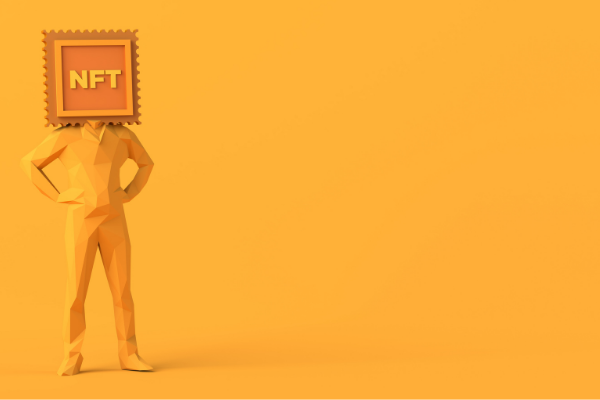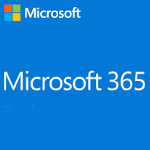Insights
INSIGHTS
All Topics
Busting the biggest digital transformation myths
06 May 2022by Laura Stanley
We explore the myths surrounding digital transformation and demystify the process of making charities more digital
Download the mythbusting report
Digital transformation is no mean feat. It is the reason charities were able to carry on with their services during the pandemic, why they have been able to adapt their fundraising to a cashless society, and continue to raise awareness of their cause.
But even the words ‘digital transformation’ can give some charities pause. With often limited resources, competing priorities, and an increase in demand for their services, it can feel as though embarking on a digital transformation project is too complicated and costly.
It does not have to be the case. In the 10 Nonprofit Technology Myths Debunked report, Microsoft Tech for Social Impact (TSI) runs through the biggest perceived challenges involved with adopting new technology and provides charities with the facts so they can make informed decisions.
Whether it’s moving towards working in the cloud or investing in their cyber security, charities should all be able to make the most of the technology available, regardless of their size, skill-level, and capacity.
Here we break down four of the myths around digital transformation and show charities how they get debunk them.
Migrating to the cloud is too complicated
The most important thing to remember with moving your resources to the cloud is that you don’t have to do it all at once. It should be treated more like a project than a one-time task. As with any project, you need a plan.
That plan should include timings (when you expect things to be delivered by) and different user needs. Charities should take stock of their different teams’ workloads and how they use technology, thinking about who might need the cloud most – perhaps volunteers work more often remotely, for example. Once this knowledge is in place, organisations can create a project roadmap from there.
Charities who use Microsoft 365 can have a bit of a headstart in this, since the software already brings together Office apps and cloud services. What’s more, charities in the UK can access Microsoft 365 products at a discounted rate on the Charity Digital Exchange and receive support from our dedicated customer service team to boot.
Keeping data on-premises is safer than in the cloud
With cyber threats growing in both number and sophistication, charities need to be especially careful with how they protect their sensitive user data. With charity employees increasingly working from home too, for at least a few days a week, being able to trust that your data is secure is vital.
Fortunately, they do not have to compromise this security to work in the cloud. The cloud is just as secure as any on-premises network. In fact, Microsoft 365 provides a 99.9% uptime guarantee – meaning that it’s reliable and operating whenever you need it.
There is lots of different software for Microsoft users when it comes to cyber security, including Microsoft Defender and Microsoft Azure Sentinel. These work together in the cloud to protect your sensitive data everywhere and detect and investigate advanced threats across both your on-premises and cloud environments, allowing you to see who is sharing your data and when so you can identify cyber threats more effectively.
There’s nothing I can do personally about cyber security
Every single person in a charity has a part to play in keeping the organisation cyber secure, from the newest volunteer right up to the CEO. The 2021 Verizon Data Breach Investigations Report revealed that 85 percent of data breaches involved a human element, intentionally or otherwise.
Anyone can suffer a phishing attack (emails or messages that ask users for their sensitive data or to unknowingly download malware that’ll grant criminals access to it), no matter how competent or tech-savvy they are.
Fortunately, charities can protect against this using technology. Charities can create security settings and protocols using software like Microsoft 365 Business Premium (again, available at a discount on the Charity Digital Exchange), automatically applying these policies to intercept or prevent cyber attacks from getting started in the first place.
Many small charities often underestimate the impact a cyber threat can have on their organisation, but the reality is they can do a lot of damage and no organisation is immune, whether they’re working on-premises or in the cloud. Being able to look after everyone at once using technology is a great help and empowers employees by reducing the risk that they might fall foul of a cyber attack.
Learning new technology is too costly
Employing new technology may seem daunting, whether you’re using it for fundraising or accounting. But there is lots of help available online to make it easier and what’s more, a lot of it is free.
Microsoft partners with TechSoup to offer its Digital Skills Center for Nonprofits, which helps charities enhance their digital skills, whatever their size, budget, and capacity.
There are courses on everything from learning how to use Microsoft Teams to how to use Excel. Some courses are self-paced, while others are instructor-led, catering to every skill level, and all at low-cost to charities themselves.
You can also find lots of handy (and free!) articles on the Charity Digital website. Our mission is to help charities become more digital, and we have new webinars, podcasts, videos, and articles being updated every day to do just that.
You can find out more about keeping yourself cyber secure in the cloud, for example, in this webinar and discover how to purchase Microsoft products at a discount here.
Digital transformation is not easy, but that doesn’t mean it has to be a chore. Read the full report from Microsoft Tech for Social Impact below to find out more.
Download the report
Click below to download the mythbusting report from Microsoft TSI and discover how you can make digital transformation easier in your charity
Laura Stanley
More on this topic
Recommended Products
03 Jan 2025by Mary Wessel
NFTs for good: how charities can fundraise with NFTs
02 Dec 2024by Laura Stanley
Take our survey – what IT support do charities need?
04 Oct 2024by Ioan Marc Jones
Create high-quality and engaging videos
Our Events
Charity Digital Academy
Our courses aim, in just three hours, to enhance soft skills and hard skills, boost your knowledge of finance and artificial intelligence, and supercharge your digital capabilities. Check out some of the incredible options by clicking here.














